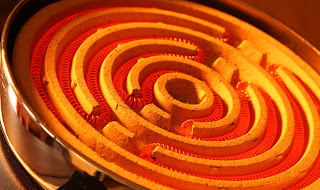M.S. Jacobs & Associates has flourished for nearly eight decades by treating quality and customer care as the cornerstones of its mission. The company began in 1945 and immediately recognized the value of forging lasting partnerships with customers in Western Pennsylvania, Western Maryland, West Virginia, and Western New York State. That forward-thinking approach grew from the belief that a business grounded in excellence can adapt to changing times and maintain a stellar reputation among its customers.
Leadership at M.S. Jacobs & Associates built this foundation by insisting on premium process control instrumentation, control valves, and process heating equipment. They never wavered from that principle because they saw that superior products instill confidence in customers who rely on consistency and performance. When a plant operator invests in high-quality equipment, unplanned downtime decreases, and operational efficiency rises. M.S. Jacobs & Associates secured its longevity by helping clients avoid unnecessary production disruptions, saving them money and keeping operations running smoothly.
The firm’s track record also reveals an unwavering commitment to service. M.S. Jacobs & Associates employees understand that clients expect more than functional hardware; they also want clarity, expertise, and accessibility. The company answers these needs by offering guidance based on decades of hands-on experience. When customers call to discuss new projects, expansions, or solutions to equipment problems, the M.S. Jacobs & Associates team examines every detail to ensure a personalized approach. They stand ready to answer questions and propose options that save money and time without compromising quality. That level of specialized attention creates trust and maintains ongoing relationships through market ups and downs.
Competitive pricing completes the trifecta of product quality, service, and long-term reliability. M.S. Jacobs & Associates learned long ago that customers want reliable products without sacrificing value. They respond by providing equipment and instrumentation that meet rigorous performance standards at fair prices that reflect the industry landscape. Customers benefit from stable pricing structures and the peace of mind of knowing their supplier refuses to cut corners. This value proposition reinforces loyalty and drives repeat business, strengthening the company’s market position while boosting overall sustainability.
Business longevity often hinges on an organization’s ability to evolve. M.S. Jacobs & Associates continually invests in emerging technologies, expanded product lines, and innovative strategies for serving the region’s industries. Because employees and leadership watch market trends and anticipate changes, they can adapt to new demands with minimal disruption. They choose vendors known for pioneering designs and advanced manufacturing processes, which allows them to stay ahead of the curve and bring cutting-edge solutions to their customers—this willingness to embrace innovation pairs seamlessly with respect for time-tested quality standards.
Reliability and trust are central themes in M.S. Jacobs & Associates’ enduring success story. Every aspect of their operation reflects a proactive stance that nurtures sustainability. Customers place their faith in companies that operate with transparency and expertise, and M.S. Jacobs & Associates meets those expectations year after year. In this way, the firm showcases a remarkable connection between longevity and a steadfast commitment to excellence. By honoring customer service, providing top-notch products, and offering competitive prices, M.S. Jacobs & Associates continues to stand the test of time and illustrate how a well-grounded business can thrive for generations.
https://msjacobs.com
800-348-0089

